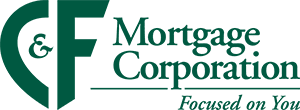It’s easy to explain what you should do when it comes to becoming a homeowner, but what about the things you shouldn’t do? As a matter of fact, there are several things you may be doing that could impact your journey toward homeownership. Below, we’ll give you a glimpse into some of these factors and how you can adjust now to put you on the track to homeownership in the future!
#1 Not budgeting.
It’s important to know exactly where your money is going, which is why budgeting is key. Start by identifying your essential expenses, such as your utility bill, credit card debt, rent payment, and car payment. For the most part, these are things that aren’t as flexible (i.e., minimum payment requirements) and are necessary for your daily life. Next, you’ll identify other areas of spending – things that are more easily adjustable, such as food, entertainment, travel, etc. It’s important to see how much money you’re putting toward these items each month to determine your total monthly spending.
Once you have a picture of how you’re spending your money, you should calculate your total income and subtract your expenses from your income. Sometimes, this can be eye-opening and can pinpoint issues, such as spending more than you’re bringing in each month. Even if you’re earning more than you spend, it’s good to keep a pulse check on your expenses and identify areas where you can cut back and save more money.
#2 Spending too much money.
One thing you may find out when you review your expenses and set a budget is that you are simply spending too much money. Often, small changes can improve your expenses, but sometimes cutting back requires more sacrifice. It may mean moving into a more budget-friendly rental or trading a pricey car in for a less expensive one. Prioritizing your spending can go far when it comes to saving to buy a house.
#3 Missing payments.
If you owe money on anything from a car payment to a credit card to a medical bill and everything in between, always pay your bill by the due date! Late or skipped payments can negatively impact your credit score and make mortgage approval more challenging.
#4 Not keeping tabs on credit.
While carrying a large amount of debt is not recommended, it is beneficial for you to have a few lines of credit open to build your credit history. A best practice is to always pay your revolving debts in full each month to avoid carrying a balance (and having to pay interest!). Additionally, you should always keep a pulse on your credit report to ensure everything looks accurate and up-to-date. Occasionally, inaccurate information can impact your credit score negatively, so it’s important to correct it as soon as you notice. Being aware of your credit report and score can also help you identify ways to improve your financial background before beginning your journey to homeownership.
#5 Not contacting a mortgage lender first.
It’s essential to fully understand your financial background and how it impacts the homebuying process before you really dive in. There’s no better way to do so than by enlisting the help of a mortgage lender. He or she can take a deeper look into your financial history and help identify areas to improve upon, gaps in credit and help you create a game plan to become financially fit.
Meeting with a lender early on also gives you a glimpse into home affordability, types of loan programs and helps you understand how much cash you should be saving for closing costs or down payment (if necessary). Let’s face it, the mortgage process can be confusing – but working with a licensed professional can give you a head start and make the process easier from the get-go!
These are just a few things you should avoid, and there are many more things you should begin doing to become a homeowner! When you’re ready to begin your homeownership journey, C&F Mortgage is there for you every step of the way. Contact our team of local industry experts to get started.

